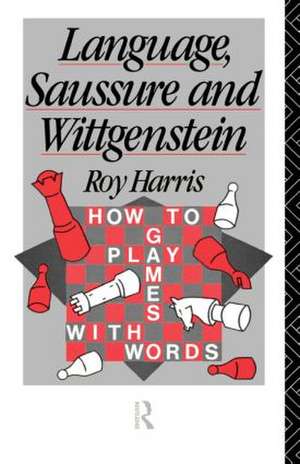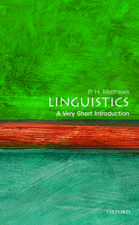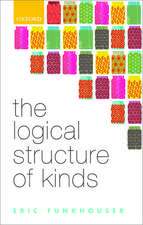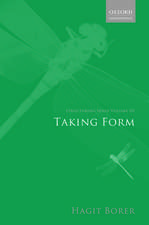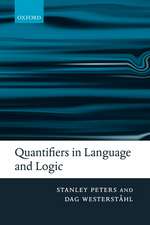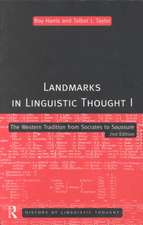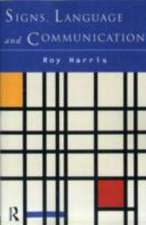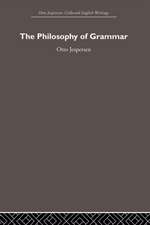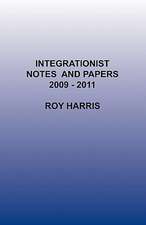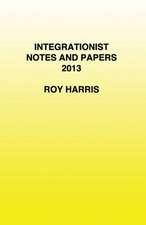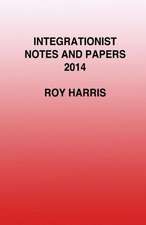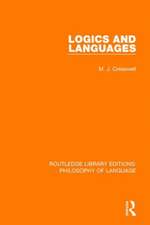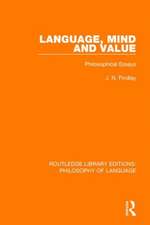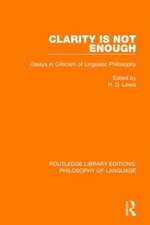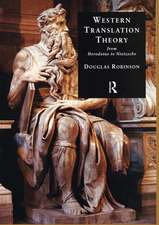Language, Saussure and Wittgenstein: How to Play Games with Words: History of Linguistic Thought
Autor Professor Roy Harris, Roy Harrisen Limba Engleză Paperback – 25 oct 1990
| Toate formatele și edițiile | Preț | Express |
|---|---|---|
| Paperback (1) | 408.88 lei 6-8 săpt. | |
| Taylor & Francis – 25 oct 1990 | 408.88 lei 6-8 săpt. | |
| Hardback (1) | 995.88 lei 6-8 săpt. | |
| Taylor & Francis – 31 mar 2016 | 995.88 lei 6-8 săpt. |
Din seria History of Linguistic Thought
- 15%
 Preț: 442.20 lei
Preț: 442.20 lei -
 Preț: 430.89 lei
Preț: 430.89 lei -
 Preț: 487.96 lei
Preț: 487.96 lei -
 Preț: 485.47 lei
Preț: 485.47 lei -
 Preț: 434.25 lei
Preț: 434.25 lei -
 Preț: 446.53 lei
Preț: 446.53 lei
Preț: 408.88 lei
Nou
Puncte Express: 613
Preț estimativ în valută:
78.24€ • 83.66$ • 65.23£
78.24€ • 83.66$ • 65.23£
Carte tipărită la comandă
Livrare economică 17 aprilie-01 mai
Preluare comenzi: 021 569.72.76
Specificații
ISBN-13: 9780415052252
ISBN-10: 0415052254
Pagini: 152
Ilustrații: black & white illustrations
Dimensiuni: 138 x 216 x 11 mm
Greutate: 0.28 kg
Ediția:Revised
Editura: Taylor & Francis
Colecția Routledge
Seria History of Linguistic Thought
Locul publicării:Oxford, United Kingdom
ISBN-10: 0415052254
Pagini: 152
Ilustrații: black & white illustrations
Dimensiuni: 138 x 216 x 11 mm
Greutate: 0.28 kg
Ediția:Revised
Editura: Taylor & Francis
Colecția Routledge
Seria History of Linguistic Thought
Locul publicării:Oxford, United Kingdom
Recenzii
'Roy Harris's Language, Saussure and Wittgenstein is a particularly welcome bridge between philosophy and linguistics ... Careful exploration of this important and influential theory ... illustrates how comparative studies of thinkers may occasionally create fascinating diffraction patterns.' - The Guardian
Cuprins
1. Texts and Contexts 2. Names and Nomenclatures 3. Linguistic Units 4. Language and Thought 5. Systems and Users 6. Arbitrariness 7.Grammar 8. Variation and Change 9. Communication 10. Language and Science Appendix Biographical Synopses
Notă biografică
Professor Roy Harris, Roy Harris
Descriere
Saussure and Wittgenstein are arguably the two most important figures in the development of twentieth-century linguistic thought. By pointing out what their ideas have in common, in spite of intellectual sources, this study breaks new ground
